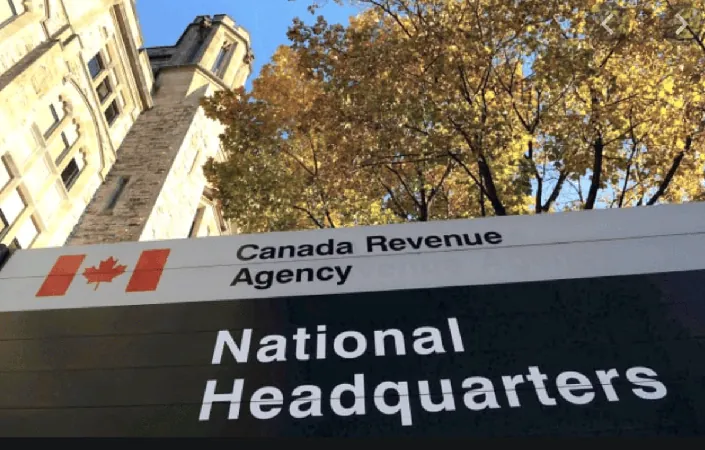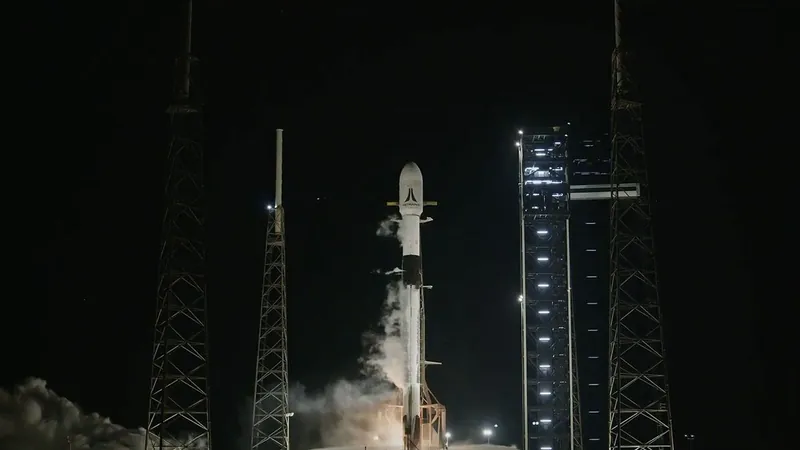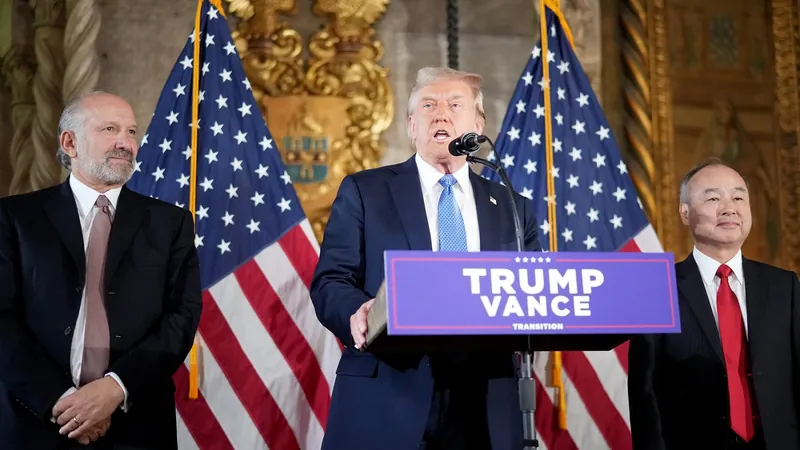
Canada Revenue Agency's Capital Gains Tax Hike Sparks Controversy Without Parliamentary Backing
2024-12-24
Author: Jacques
Introduction
In a shocking move that has drawn widespread criticism, the Canada Revenue Agency (CRA) has begun enforcing a staggering $17.4 billion increase in capital gains taxes, all without the necessary approval from Parliament.
CRA's Bold Claim
According to Blacklock's Reporter, the issue arose when an agency manager claimed that CRA auditors would 'continue to administer the proposed legislation' as if it were already law. This startling assertion has left many taxpayers and watchdogs questioning the legality of the CRA's actions.
Response from the CRA
'We are looking into this,' stated CRA spokesperson Benoit Sabourin when approached for clarification. 'We will keep you up to date.' However, this response has done little to quell the concerns of those who fear the agency is overstepping its bounds.
Details of the Proposed Tax Increase
The proposed tax increase, as laid out in the federal budget released on April 16, aimed to raise the taxable portion of capital gains from 50% to 66%. Although the House of Commons passed a required Ways and Means Motion on June 11, no further legislation was introduced or debated before Parliament was dissolved.
Implementation Despite Lack of Authorization
The CRA had intended for these changes to take effect on June 25, but with the lingering absence of formal authorization, auditors are treating the higher rate as applicable. Nina Ioussoupova, a senior project officer in the agency, confirmed that they would still enforce the 66% inclusion rate, even if a federal election were to intervene.
Industry Reactions
'This makes no sense at all,' expressed Dan Kelly, CEO of the Canadian Federation of Independent Business. 'Legislation has not even been introduced and yet the CRA is implementing these new rules as if they're applicable since June 25. They claim that even an election cannot revert it back to the 50% rate.'
Kelly has called for immediate clarity on the situation, arguing that there needs to be a definitive timeline for the government to enact tax legislation. He urged policymakers to withdraw the proposal altogether, enabling a thorough debate among political parties during the upcoming election campaign.
Concerns About CRA's Authority
The unfolding controversy has thrown a spotlight on the CRA's authority to enforce tax measures without parliamentary consent. Such actions raise serious questions about the balance of power in the Canadian government. Former Liberal MP Wayne Easter weighed in on the matter, emphasizing the importance of parliamentary supremacy. 'Parliament is supreme,' he stressed during a 2021 debate on tax enforcement. 'Parliament is above cabinet, it is above the Department of Finance. We can’t allow that to be undermined.'
Context of the Tax Increase
The proposed tax increase forms part of a more extensive plan aimed at addressing Canada’s alarming deficit, which, according to the December 16 Fall Economic Statement, has surged by 21% over target, climbing from $39.8 billion to a staggering $48.3 billion.
Conclusion
As Canadians brace themselves for the potential impact of this tax hike, calls for accountability and transparency from the CRA are louder than ever. Will the government step in to rectify this situation, or are taxpayers in for a surprise during an already turbulent election season? Stay tuned for updates on this unfolding legislative drama!









 Brasil (PT)
Brasil (PT)
 Canada (EN)
Canada (EN)
 Chile (ES)
Chile (ES)
 España (ES)
España (ES)
 France (FR)
France (FR)
 Hong Kong (EN)
Hong Kong (EN)
 Italia (IT)
Italia (IT)
 日本 (JA)
日本 (JA)
 Magyarország (HU)
Magyarország (HU)
 Norge (NO)
Norge (NO)
 Polska (PL)
Polska (PL)
 Schweiz (DE)
Schweiz (DE)
 Singapore (EN)
Singapore (EN)
 Sverige (SV)
Sverige (SV)
 Suomi (FI)
Suomi (FI)
 Türkiye (TR)
Türkiye (TR)